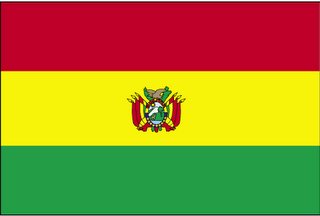Keeping It Together (mantenimiento juntos)
The Catholic Church will act as a mediator after dialogue meetings in January and February, failed to bridge the two sides.
Over the weekend, the church issued an ultimatum to both parties and warned that it would not sponsor the dialogue if there is no prior agreement between the central government and the opposition governors of the “Media Luna”.
Secretary General of the Bolivian Episcopal Conference, Jesus Juarez, stated that both sides must agree to develop an agenda of concrete dialogue before sitting down to negotiate. He also called for an end to the escalation in political attacks.
The major actors in the coming dialogue are expected to be Cardinal Julio Terrazas, President Morales and Ruben Costas, departmental governor of Santa Cruz.
Dialogue meetings led by President Morales in January and Vice President Alvaro Garcia Linera in February had no effect in stemming the ongoing political conflict that erupted after the Constituent Assembly adopted a draft constitution in December 2007.
Initially the central government resisted the opposition’s demand to involve an international organization or Church as a mediator. But after almost three months without any progress, the situation grows more difficult in the country.
As of March 14, the Bolivian Catholic Church agreed to mediate between the parties, but to date there are no breakthroughs as the opposition has soundly rejected the draft constitution, demanded more autonomy and control over departmental oil and gas revenue.
Recent statements by the opposition have escalated the severity of intentions to separate from the central government in La Paz.
In February, President Morales signed into law a measure making illegal all autonomy measures not directed from Bolivia’s Congress. This law gained greater support in early March when Bolivia’s highest electoral court ruled that autonomy referendums put forth by the individual departments of Santa Cruz, Beni, Pando and Tarija could not move forward.
Despite this ruling and the congressional law, plans to hold autonomy votes in these departments continue.
According to statements made last week by opposition senator Roberto Ruiz Bass Werner, the departmental prefects and civic opposition of the “Media Luna” plan to formalize a "Federation of Autonomous Departments", with seven of the nine provinces.
The federation will consist of seven regions: Santa Cruz, Tarija, Beni, Pando, Chuquisaca, Cochabamba, and possibly Potosi.
The PODEMOS senator from Tarija explained that the new federation will be formed once autonomist statues are adopted in four regions through referendums. According to Ruiz, once the autonomist statues are approved by popular vote, they will be adopted, usurping the Bolivian constitution.
Senator Ruiz’s statements indicate that the federation plans to isolate the two remaining departments of La Paz and Oruro.
“What will make {the central government} at that time?” asked Ruiz, stating that La Paz will not be able to impose its Constitution on the national territory which will be beyond its power.
Meanwhile, the central government agreed to observe the March ruling of Bolivia’s National Electoral Court that suspended nation-wide voting on the country’s new constitution on May 4. However, the electoral bodies of the departments of Santa Cruz, Beni and Pando rejected the court’s decision.
President Morales has claimed that the opposition’s schemes for autonomy are acts of "separatism" promoted to destabilize the government in La Paz.
Felix Rojas, head of the Movimiento Al Socialismo party in the Senate, said Congress is ready to review all 411 articles adopted by the Constituent Assembly in December.
Congressional MAS members have claimed that the legislative body is empowered to make the necessary adjustments in the proposed new Constitution in order to end the impasse.
Several MAS members have expressed a desire to explore any proposals that will continue the dialogue between the government and the departmental governors.
"We are looking for all sorts of proposals for giving life to dialogue," said Gustavo Torrico. He also indicated the need to thoroughly explain the dangers of the proposal of Senator Roberto Ruiz to create a federation of autonomous departments.
Torrico stated that the central government accepts autonomies but with solidarity, not those that intend to split the country. He called such a strategy extremely dangerous for Bolivian unity.
On Saturday, residents in Chuquisaca demonstrated in support of the government. Around 45,000 people gathered in a soccer field in the city of Tarabuco to express their rejection of the attempted separatism. Peasants, university students, workers and native people gathered to defend the unity of Chuquisaca and Bolivia, stating their support for the new Bolivian Constitution.
Labels: Constitution MAS Morales Media Luna Roberto Ruiz Bass Werner Catholic Church



